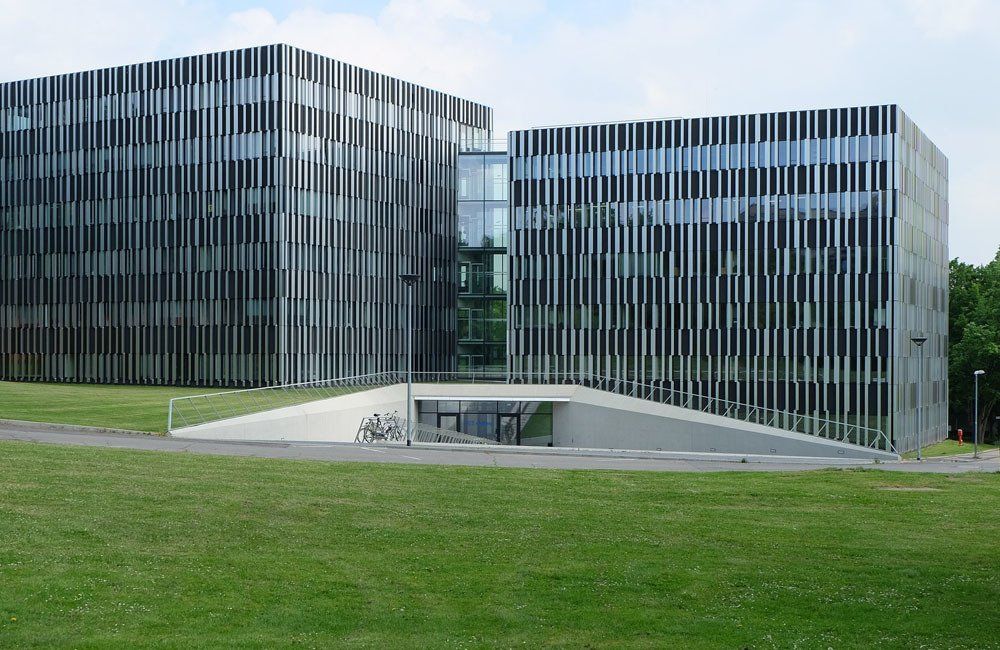Graduating from DSJ will Open Doors to Top Universities Worldwide
Published:
Students at the Deutsche Schule Jakarta have the option of earning the “Deutsches Internationales Abitur”, which is a high school diploma recognised worldwide. The Abitur opens many doors for our students, allowing them to apply and enrol in essentially any university or college in the world. The Abitur is such an esteemed degree that it even enables students to apply to the most prestigious universities around the globe, such as Harvard, Yale, Cambridge, and Oxford.

The world is your oyster as a DIA graduate and limitless options await, though we at the Deutsche Schule Jakarta strongly encourage our students to consider pursuing their undergraduate education in Germany, where they’ll enjoy a number of benefits.
For starters, students can continue their education tuition-free! That’s right: Abitur graduates would not have to pay tuition to attend university in Germany. Still, the cost of living is a factor to consider, but, fortunately, there are cost-effective options. Because every German university has the same level of study and degree quality, a student might choose to study at a provincial university where the cost of living is cheaper than in a big city, though they’ll still receive the same excellent education as their metropolitan peers.
Moreover, there is only one requirement to gain admission to a German university: the Abitur! Many international universities require extra supplemental materials such as standardised tests, letters of recommendation, and personal essays. None of this is required for entry to German universities unless you plan on pursuing a degree in medicine, dentistry, veterinary medicine, or pharmacy. Many of these programs restrict the number of students to ensure quality. To enter one of these programs, you will likely have to have a certain grade point average and/or take special entrance exams.
Our Alumnus Dr. med. Biyan Harapan at the Neurological Clinic at the University hospital in München, Grosshadern.
Another benefit to studying at a German university is that your subject choice in upper secondary school does not dictate your future major. So, for example, let's say you focused on the sciences in the Abitur, and you realized you’d actually rather pursue a degree in law as a university student. That would be no problem if you went to a German university. For more details also check our University Entrance page.
In fact,
German universities — and there are over 400 of them — have an impressive range of study options, which are very appealing to students. As of the 2021-2022 school year, there were over 20,000 different degree options at German universities. Basically, you have the ability to study any subject you could dream of.
If you’re interested in studying at a German university, it’s worth knowing the different kinds of institutions available to you. First, there are
"Universities", which give students access to education, research, and teaching opportunities; the study is more theoretical in nature and the basics of each respective field of study are emphasized. Beyond earning their undergraduate degree, a student may go on to pursue even higher degrees at these institutions.

Another type of school is called the “Hochschule für Angewandte Wissenschaft,” which is less theoretical than universities, and offers more differentiated courses taught in smaller groups. Next is “Duale Hochschule,” which combines theoretical teaching with practical work through a certain employer. These programs typically last two years and students have the ability to earn an income from their employer, which nets to approximately 900 euros monthly.
Additionally, students who want to pursue education to become a teacher might choose to go to a “Pädagogische Hochschule,” while those seeking to become public employees and officers would attend a “Hochschule des Öffentlichen Dienstes.”
Lastly, artists wanting to hone their craft would attend a
“Hochschule für Bildende oder Freie Künste" or a
“Musikhochschule”, though it should be noted that these schools are mostly private and the education is only partially financed by the government. As you can see, there are many options for students to continue to study and pursue their dream careers through the German higher education system.

One final point in favor of studying at a German university is that these degrees are also recognized internationally, just like the Abitur. Students will leave their program with either a bachelor’s degree or even a master’s degree if they pursue further postgraduate education.
Given all of these significant benefits, you may be wondering which German university is right for you?
RWTH Aachen is the largest technical university in Germany with more than 47,000 students enrolled in 144 study programs. It is a globally renowned school, ranked 31st in the world university rankings in the field of engineering and technology, and 36th in the field of natural sciences.

If you want to be in the exciting center of Germany’s metropolitan capital, then you might consider FU Berlin, TU Berlin, or Alexander von Humboldt. FU Berlin is one of the eleven elite German research universities in the German Universities Excellence Initiative and frequently ranks within Germany’s top ten universities overall, though the school is particularly strong in the fields of political science and humanities.
TU Berlin — an incorporated society of the largest and most notable German technology institutes— focuses on engineering and technology.
The third Berlin school on this list, Alexander von Humboldt, is the oldest Berlin university and renowned for its programs in the natural sciences — and its impressive history; during the 19th and early 20th centuries, the university was linked to major breakthroughs in physics and other sciences by its professors, such as Albert Einstein. Among its past and present faculty and alumni are an impressive
57 Nobel Prize laureates.

Shifting from Berlin to another major city, Munich, students might consider either Ludwig Maximilian München (LMU) or TU München. Students who thrive in vibrant and populous environments would find themselves perfectly at home at LMU, which is currently the second-largest university in Germany in terms of the student population.
LMU also has an illustrious heritage, being the sixth-oldest university in continuous operation. For students more technically oriented, TU München specializes in engineering, technology, medicine, and the applied and natural sciences with its 11 schools and departments and numerous research centers. TUM is consistently ranked among the leading universities in the European Union.
These are just a few of the many options awaiting our Abitur graduates should they choose to continue their studies in Germany. Given the breadth of choices, it is important that our students feel empowered to select the right university and degree program to fit their interests, strengths, and future goals.

To this end, the Deutsche Schule Jakarta offers extensive support throughout our students’ educational path. In fact, career orientation begins in grades 7 and 8 with research on professions using the online career advice service of the German Federal Employment Agency.
Then, in the 9th grade, students participate in a two-week internship, which provides introductory insight into the world of work and encourages them to critically review previous career or study ideas. In preparation for this, the students receive application training during their German and English lessons. During grade 10, the students participate in an exchange trip with our partner school in Schweinfurt, Germany, which gives them a sense of what attending university in Germany would be like.
Additionally, during that year, students are given various online personality type and study choice tests, as well as online group counseling by the Federal Employment Agency, and an informative lecture by the DAAD Jakarta. Finally,
in grade 12, the students are given individual advice based on a questionnaire provided at the beginning of the school year. With all of these resources and experiences, our students are well prepared to make crucial decisions about their education after graduation.

And, perhaps, they decide that a German university is not the best fit for them. Instead, they might seek education at an English-speaking institution in Australia, New Zealand, Britain, the United States, Singapore, or the Netherlands. In all of these cases, the Abitur will continue to open doors for our graduates, allowing them to apply to any of these universities.
DSJ is committed to preparing our students for a future where they can envision themselves traveling anywhere in the world for education or work.
By earning the Abitur degree, they are not only applicable for opportunities anywhere they dream of, but have also acquired the skills to find success in the program of their choosing.




